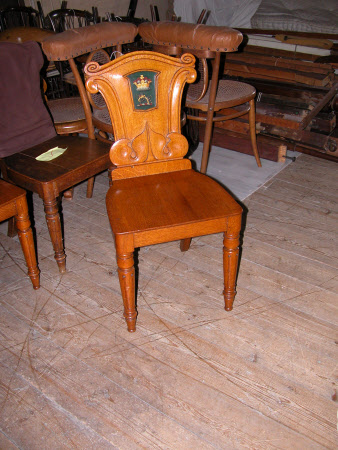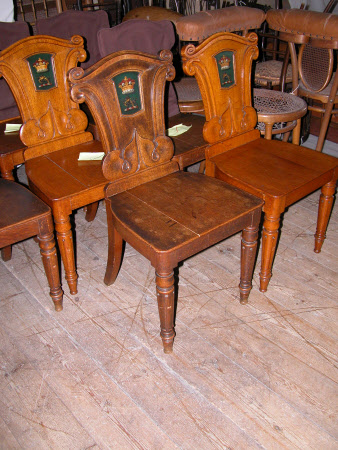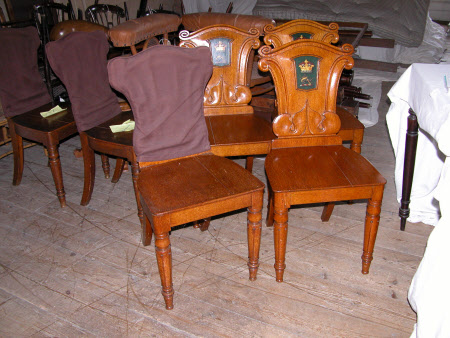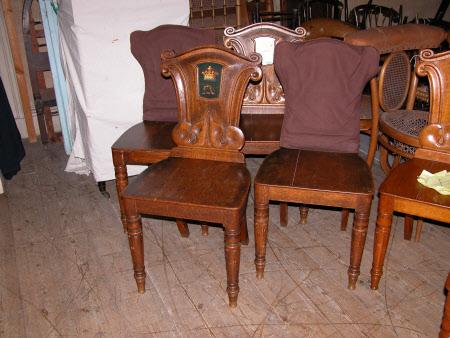Hall chair
Banting, France and Co.
Category
Furniture
Date
circa 1830
Materials
Oak, painted oak
Measurements
85 x 42 x 39 cm
Place of origin
St James's Street
Order this imageCollection
Ickworth, Suffolk
NT 850073.4
Summary
One of a set of eight oak and polychrome painted hall chairs by Banting, France & Co. London, circa 1830 The solid shaped back within a scroll carved frame and twin stylized shell motifs centred by a shield panel painted with the Bristol crest and Marguess coronet. The solid seat raised on lappet carved turned tapered legs.
Full description
Banting and France & Co., 27 St.James' Street, London (1813-40) The furniture in the main entertaining rooms at Ickworth was almost exclusively supplied by the firm of Thomas Banting and William France. The invoices for this outstanding group of furnishings are in the Hervey papers (See Suffolk County Records office, Bury St. Edmunds: 941.81/17 and 941/81/11). Banting and France were Royal cabinetmakers and held Royal Warrants in the reigns of George III, George IV, William IV and Queen Victoria. The Hervey family of Ickworth also maintained property in London at 6 St James's Square, as well as Bristol House in Putney and a house at No.19 Sussex Square, Brighton to which Banting and France were to also supply furnishings. Most of the contents of the Brighton property was moved to Ickworth in 1936. Banting and France assisted with the organisation of the sale of furniture by auction at St James' Square in 1814, although the Hervey family kept and refurnished the property, moving the later contents to Ickworth in 1950. Ickworth and its contents passed to the National Trust in lieu of death duties in 1956 although the family leased back the East Wing and continued to live there until it was sold by the 7th Marquess of Bristol (1954-1999) who sold the lease to the National Trust in 1996.
Provenance
Part of the Bristol Collection. Acquired by the National Trust in 1956 under the auspices of the National Land Fund, later the National Heritage Memorial Fund.
Makers and roles
Banting, France and Co., furniture designer and maker



